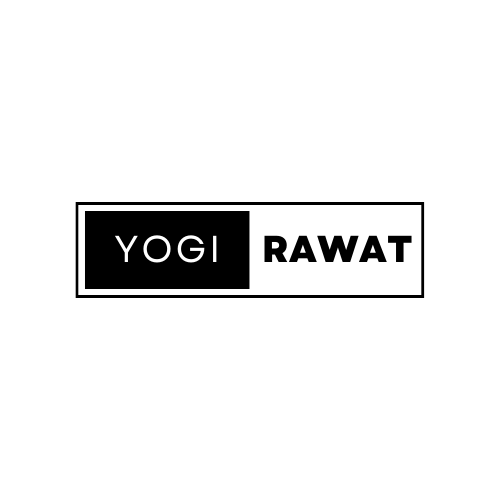Are you feeling nervous about an upcoming job interview?
Are you concerned about stumbling over your words or drawing a blank when asked a question? Don’t worry – interview warm-up techniques can help you gain the confidence and composure you need to excel during the interview process. In this article, we’ll explore a range of strategies to help you prepare mentally, emotionally, and verbally for your interview. From overcoming nerves to articulating your strengths effectively, we’ve got you covered.
I have already written articles on how to crack critical interviews, how to get more interview calls daily, and which all certifications are required which can help you in getting the right job.
Let us now deep dive into the article on how to boost your confidence and performance before facing any interview.
Table of Contents
- Understanding the Importance of Interview Warm-up
- Research and Know Your Audience
- Crafting Your Elevator Pitch
- Preparing for Common Questions
- Showcasing Your Achievements
- Managing Nervousness and Anxiety
- The Power of Positive Visualization
- Practicing Active Listening
- Body Language and Nonverbal Communication
- Turning Weaknesses into Strengths
- Storytelling as a Communication Tool
- Staying Updated with Industry Trends
- Role-Playing for Effective Responses
- Mock Interviews and Feedback
- Boosting Your Confidence Through Preparation
Understanding the Importance of Interview Warmup
Preparing for an interview goes beyond just knowing the answers to potential questions. An interview warm-up is like a rehearsal before a big performance – it helps you ease into the interview mind-set, allowing you to present yourself confidently and authentically.
Please remember one thing; an interview can change your life. Therefore it is your that special day and you will have perform, and give your 100%.
Research and Know Your Audience

One of the keys to a successful interview warmup is understanding the company, its culture, and the role you’re applying for. This knowledge not only demonstrates your interest but also allows you to tailor your responses to align with the company’s values and objectives.
You need to also research about the management leaders like who is the CEO of the company, who is the CFO of the company, and the COO. Inquire about the company’s performance and the latest quarterly results.
Crafting Your Elevator Pitch
Crafting a concise and compelling elevator pitch helps you introduce yourself confidently and succinctly. This 30-second overview should highlight your skills, experience, and what you can bring to the table.
This is the most crucial part of any interview, so show it and give your best!
Preparing for Common Questions
While you can’t predict every question, you can anticipate common ones like “Tell me about yourself” or “What are your strengths and weaknesses?” Prepare thoughtful answers that showcase your skills and experiences relevant to the job.
Some common questions could be personal like “Who is in your family”, “What does your parent do”, “Are you married”, some questions could be professional like “What is your ambition”, and “How do you see yourself in next couple of years”.
Showcasing Your Achievements

Back up your claims with concrete examples of your accomplishments. Highlight how your contributions made a positive impact in your previous roles.
Ensure the accomplishments, rewards, and recognition are updated in your CV, if not then spend at least a minute on it.
Managing Nervousness and Anxiety
Feeling nervous is natural, but there are techniques to manage it. Practice deep breathing exercises and positive affirmations to calm your nerves before the interview.
Be confident on what you speak, if you are wrong then also be confident. Normally people start to fumble due to nervousness and anxiety.
The Power of Positive Visualization

Visualize yourself succeeding in the interview. Envision confident body language, articulate responses, and a positive interaction with the interviewer. Move your hands while expressing yourself; try to have a little casual interaction with your interviewer.
Be positive; think that you have already cleared your interview.
Practicing Active Listening
Listening carefully to the interviewer’s questions allows you to provide relevant and concise responses. It also shows your ability to engage and communicate effectively. You can become a good listener by listening a lot of audio files, music, speech, and inspirational and motivational audios.
Body Language and Nonverbal Communication
Your body language speaks volumes. Maintain eye contact, offer a firm handshake, and sit up straight to convey confidence and professionalism.
Turning Weaknesses into Strengths
When discussing weaknesses, frame them as opportunities for growth. Show how you’ve worked to overcome challenges and develop new skills. What are the similar challenges you have faced in the past in your life, and how you have overcome those challenges.
Storytelling as a Communication Tool
Crafting stories about your experiences adds depth to your answers. Engage the interviewer by weaving in anecdotes that highlight your skills and problem-solving abilities.
Staying Updated with Industry Trends
Demonstrate your interest in the field by staying informed about the latest industry trends, technologies, and developments. Do a homework before getting interviewed, check out the latest technology on which the company is working on.
There are chances that the interviewer might ask questions on the technologies and platform of the company.
Role-Playing for Effective Responses
Enlist a friend or family member to conduct mock interviews. Role-play various scenarios to practice articulating your responses clearly and confidently. If no one is there, then record your mock interviews and listen them again and again, this will help you to find the mistakes which you are doing.
Mock Interviews and Feedback
Participating in mock interviews helps you identify areas for improvement. Seek feedback on your performance to refine your answers and delivery. Feedback will also help you on your weakness; it will also help you in getting ready for the next interview.
Boosting Your Confidence Through Preparation
Preparation is key to building confidence. The more you rehearse, research, and visualize, the more in control and composed you’ll feel during the actual interview. One should at least rehearse for 5-6 times in a day. If you are still uncomfortable then rehearse in front of mirror or in front of your parents and friends.
Interview warmup techniques are invaluable tools that can turn anxiety into confidence and uncertainty into clarity. By dedicating time to research, preparation, and practice, you’ll be well-equipped to tackle any interview with poise and professionalism.
FAQs
Q1: How long should an elevator pitch be?
A: An elevator pitch should last about 30 seconds, providing a concise overview of your skills and experience.
Q2: What if I don’t know the answer to a question during the interview?
A: It’s okay to admit when you don’t know something. Offer to research and follow up with an answer after the interview.
Q3: How can I overcome nervousness before the interview?
A: Practice deep breathing, positive visualization, and remind yourself of your strengths to calm nerves.
Q4: What’s the significance of body language in an interview?
A: Body language conveys confidence and professionalism. Maintain eye contact and use open gestures.
Q5: How many mock interviews should I do?
A: It’s beneficial to do at least a few mock interviews to refine your responses and delivery.


